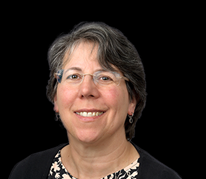- This event has passed.
December 18, 2017 @ 7:00 am - 8:30 am
Free
Unsafe medication is a leading cause of harm, most of it preventable, in health care systems across the world. Medication incidents occur when weak medication systems and/or human factors such as fatigue, poor environmental conditions or staff shortages affect prescribing, transcribing, dispensing, administration and monitoring practices, which can then result in severe harm, disability and even death. The aim of this webinar is to arm participants with at least one practical idea and/or resource to advance safe medication as well as an increased understanding of:
- Why harm from medication is a global issue: the size of the problem and contributing factors
- Opportunities to leverage Medication Without Harm: The third WHO Global Patient Safety Challenge
- What you can do to prevent harm from medication
- Patient engagement in primary care in Israel: lessons learned
- Ways to partner with patients, families, patient partners and the public
This webinar is part of “Safe Medication – Think Global, Act Local,” a global webinar series designed and facilitated by patient partners.
Click here to learn more about the webinar and register.


